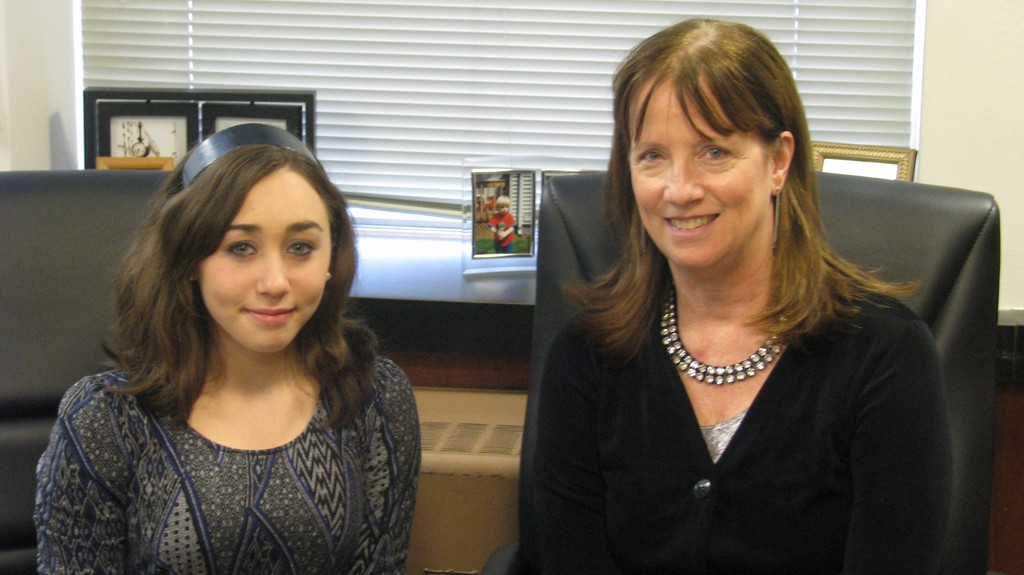Hard work and asense of curiosity pay off
Hewlett High School'sPatricia Donskoy is an Intel semifinalist
To earn semifinalist status for one of the two most prestigious national science competitions is a significant achievement, but to be named a semifinalist in both the 2011 Siemens Competition in Math, Science & Technology and the 2012 Intel Science Talent Search is something special.
“I’m very excited, I spent long hours with this project and my Siemens project, and the hard work paid off,” said Hewlett High School senior Patricia Donskoy, who had the dual honors bestowed upon her. “I wanted to win and I am glad I got this recognition.” She was one of 300 Intel semifinalists out of 1,839 submissions who were awarded $1,000 for their project. In addition, the student’s school also is awarded $1,000.
Donskoy was part of a three-student team that was named a semifinalist in October for their Siemens project, “Receptor for Activated C Kinase 1 (RACK1) Regulates Cell Division, Gametophyte Development and ABA Signaling in Ceratopteris richardii,” which determined that the gene RACK1, found in humans and plants, could make plants grow bigger, better and faster while resisting microorganisms that cause disease.
Her Intel project, an individual effort, focused on the topic of bullying. Entitled, “Guardians Who are the Last to Know: An investigation of Why Adolescents Choose Not to Report Bullying to Teachers,” Donskoy examined student perceptions of teacher involvement in bullying situations.
Though not a victim of bullying, Donskoy said that she has seen bullying in the hallways and classrooms of her school and considered it “a very hot topic” due to its substantial presence in schools and the media attention it garners. “That is why I approached it,” said Donskoy, who conducted extensive research through articles about bullying and newspaper reports.
Her research found that adolescent reporting of bullying incidents is extremely low and more than two-thirds of high school students are not comfortable about approaching a teacher about bullying. “Research had 67 percent thinking that way and my studies support that,” Donskoy said.

 54.0°,
Overcast
54.0°,
Overcast 




